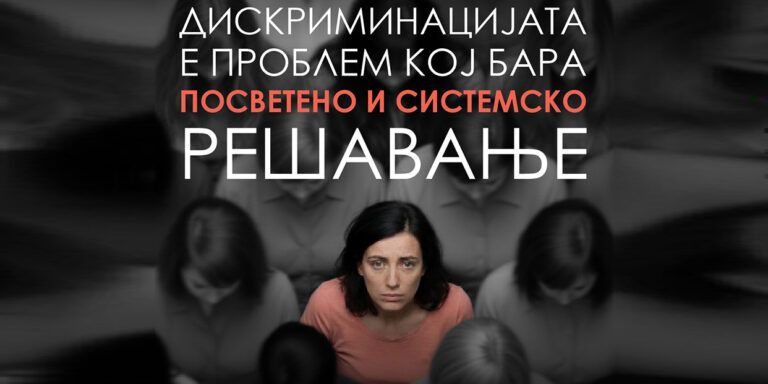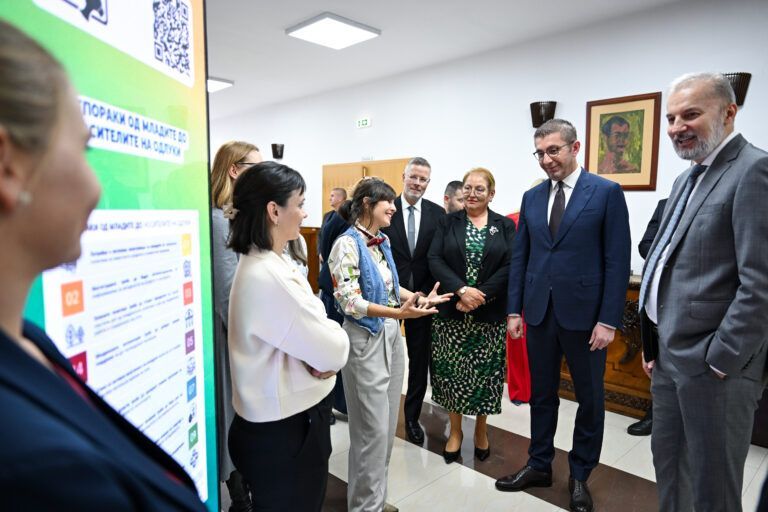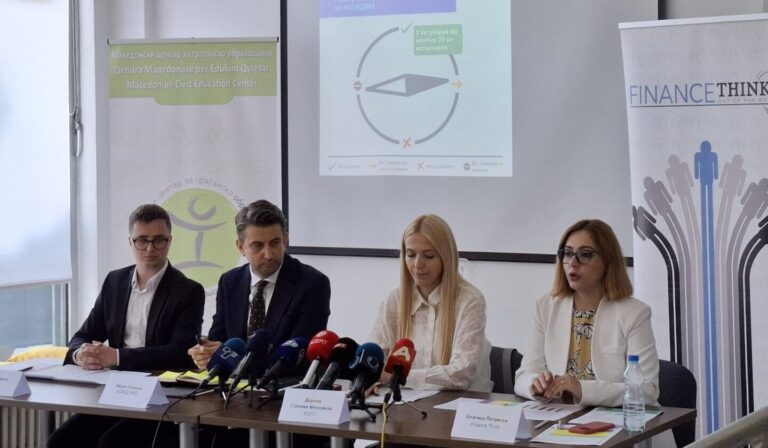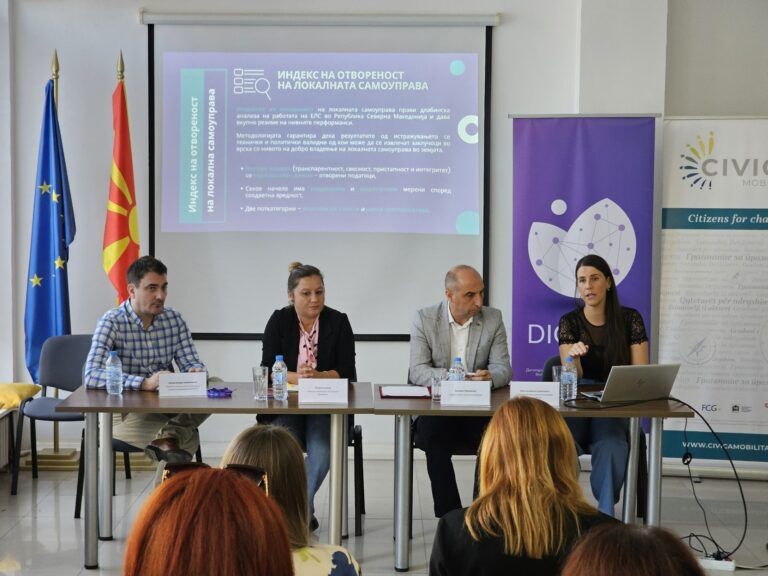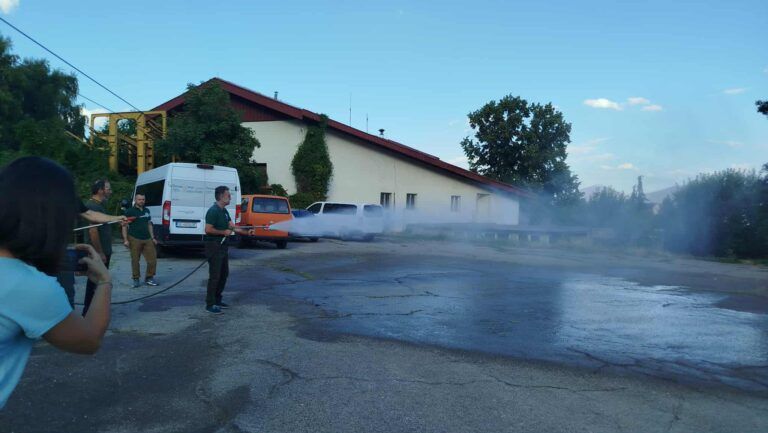Clean Drinking Water – A Basic Right or a Luxury?
Five years ago, worried that illnesses affecting several members of her family and friends were caused by contaminated water in Gevgelija, Jovanka Dojranlieva joined forces with a few citizens from Gevgelija to form the civic initiative “Arsena.” They set out to investigate the quality of the water supplied by the public utility company “Komunalec” Gevgelija. According to findings from the State Agency for Food and Veterinary Services, the water in Gevgelija contains almost twice the allowable amount of arsenic. According to the World Health Organization, arsenic is one of the most potent poisons, directly affecting human DNA and, among other things, leading to genetic disorders of the bone marrow, as well as causing leukemia.
So far, “Arsena” has conducted 10 independent tests and analyses of water samples from Gevgelija in an internationally certified laboratory in Greece. All results show that arsenic in the city’s water system consistently appears at high concentrations, ranging from 50% to 120% above the permitted limit. Further research revealed that arsenic occurs naturally and can only be removed by installing filtration equipment at the water source.
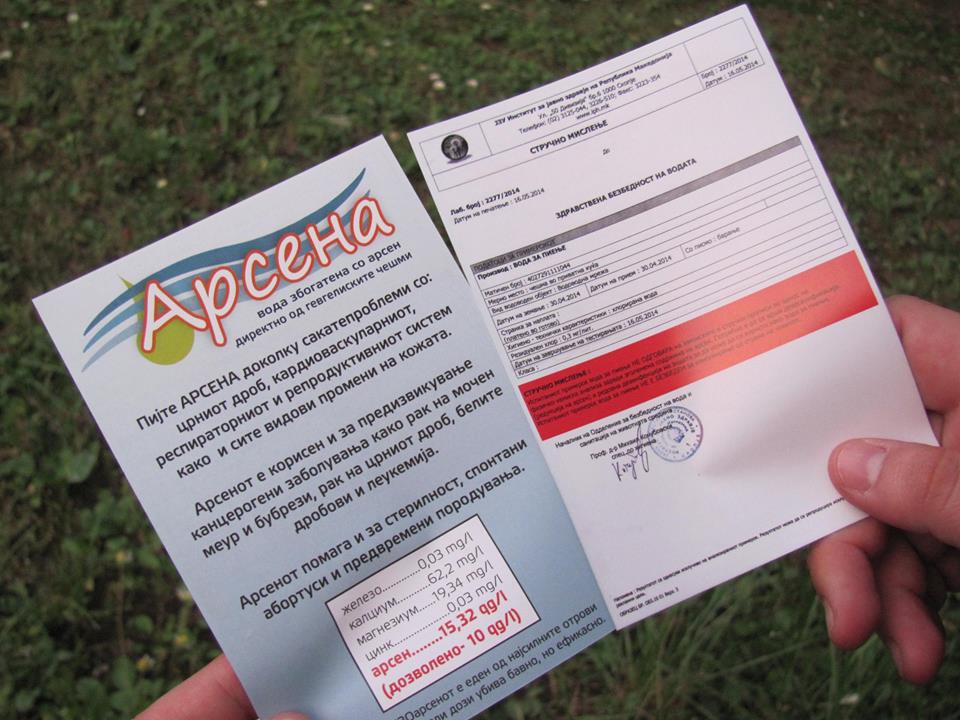
“We do not want an arsenic-laden cancer bomb running through our taps. Solve this problem, because the consequences are already visible in the municipality’s health records and the number of deaths from neoplasms, which have not spared even the youngest,” the activists of Arsena stated.
To increase financial support and to take legal action and file complaints, in 2014, 20 activists from “Arsena” established the civic organization “Patokazi.”
What Did They Do?
Without an alternative source of safe water, the citizens of Gevgelija took matters into their own hands.
The civic initiative Arsena publicly releases quarterly data on the quality of water in Gevgelija, even though this is legally the responsibility of JPKD Komunalec. Over time, they have also carried out numerous creative actions to draw public attention. These include: a petition to reduce water prices according to the technical water tariff, so citizens only pay for what they receive; encouraging local companies to provide free bottled water for the most vulnerable households; and placing boards with water test results at key locations in the city, including in front of the municipal building and the mayor’s residence.
To inform the wider public and raise awareness about the issue, they set up a stand at the Skopje square, offering passersby bottles of water “enriched” with arsenic. Several national media outlets covered this action, drawing significant attention to the (non-)handling of the problem.
“No one informed citizens about the quality of water from natural sources, whether it is treated, disinfected, or truly safe for consumption. The analyses clearly show that risks exist,” the initiative states.
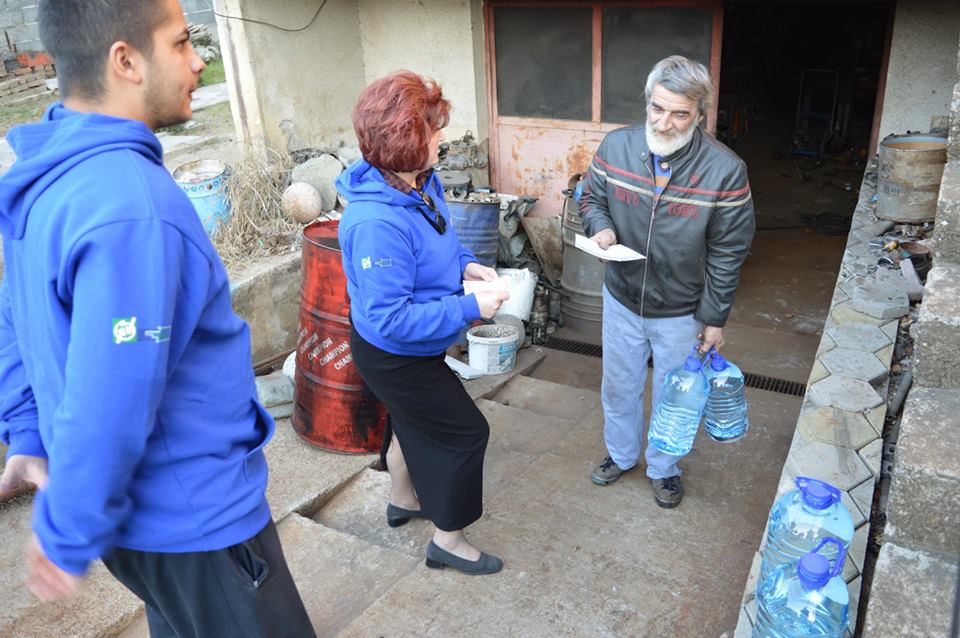
Former Mayor of Gevgelija, Frangov, and municipal councilors consistently refused to address the issue, denying that Gevgelija’s water was unsafe. On several occasions, councilors claimed they did not have material for discussion, even though activists documented them receiving the water test results. Meanwhile, Mayor Frangov stated: “My family and I drink this water, which means it is safe.”
What Support Did They Mobilize?
Concerned citizens and their active involvement are the initiative’s greatest asset, demonstrated by a petition with more than 500 signatures. Additionally, the organization Patokazi successfully applied for small grants to cover the cost of foreign expertise for objective testing and video documentation of their municipal research. Among these funds was support from Civica Mobilitas.
“Not even lies can hide the truth about arsenic in Gevgelija’s water.”
—Posted by Arsena, Friday, June 23, 2017
Members of Patokazi established strong cooperation with the organization Aqua from Struga, another Civica Mobilitas grantee. This highlighted citizen solidarity in monitoring water-related issues and represents a rare example of knowledge transfer between organizations. Furthermore, Arsena was able to mobilize resources from the local community, as some local stores provided free bottled water for vulnerable families, and a local printing house offered significant discounts on promotional materials.
What Changed? What’s Next?
Years of pressure by Arsena bore fruit. For failing to comply with the decision to ban the use of water due to high concentrations of the toxic metalloid arsenic and the lack of protective measures for citizens, the Basic Public Prosecutor’s Office in 2014 initiated proceedings against JPKD “Komunalec,” including current and former managers.
Despite the local authorities’ denials and constant belittling of such initiatives, the municipality nevertheless sought financial support due to the “need for additional water supply.” The first tender for a new water supply system was announced in 2014 by then Minister of Finance Stavreski. However, no results came from this announcement, and since then, four more tenders, one grant, and four investors have been involved, yet no contractor has begun work on-site.
ARSENIC – The King of Poisons, Poison for the Kings
—Posted by Arsena, Friday, August 18, 2017
The activists’ fight for safe drinking water and accountability from local authorities continues. The Ministry of Environment now fully supports a comprehensive study of all options for supplying water to Gevgelija. Members of the organization hope the solution will be a new water supply system, expected to be installed in 2018. Meanwhile, they will continue their campaign for clean drinking water to ensure Macedonia moves toward EU standards.
The project “Citizens and Arsena Together for Safe Drinking Water for Gevgelija and Surrounding Areas” was implemented from 1 December 2016 to 31 July 2017 with the support of the Civica Mobilitas program.
Civica Mobilitas is a project of the Swiss Agency for Development and Cooperation (SDC), implemented by NIRAS from Denmark, the Macedonian Center for International Cooperation (MCIC), and the Swedish Institute for Public Administration (SIPU).
For more information about Civica Mobilitas, contact us at +389 2 3088 995 or at helpdesk@civicamobilitas.mk



